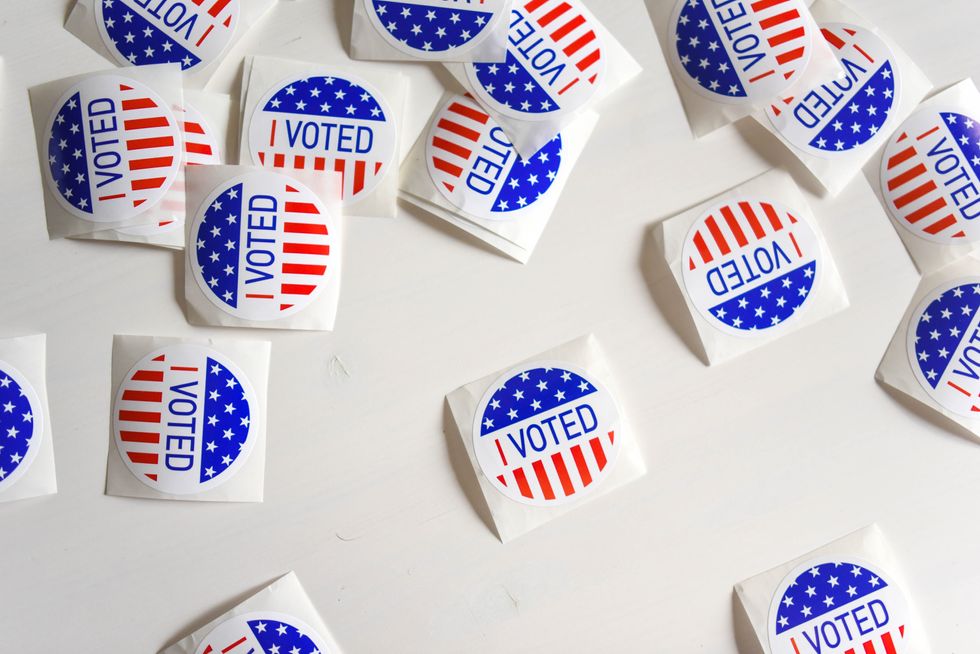A majority of you reading this are most likely heading off to college, perhaps for the first time, in the next couple weeks. Between organizing your class schedule and figuring out how all of your belongings will fit in a tiny dorm, it's easy to forget about voting, let alone registering to do so. I'm in the same boat, as I recently turned 18 and will be living in a different city when I go to school. However, I still recognize the importance of voting
because the President is crazy and believe everyone should do so if given the opportunity.
Below you will find a guide to registering to vote, including information about absentee ballots and what living in different places means for you.
Register to vote
If you are a citizen of the United States and 18 years old, you can register to vote! This can be done in-person at a local town hall or community center or you can mail in a form to your city/township clerk. The clerk's address can usually be found on your state's Secretary of State website, along with the voter registration form. I personally was sent the form from my township's clerk along with a return envelope. Simply print out the registration form and fill out the required information. The material that you will need to provide on the form includes your home address, Social Security number, and your state driver's license number.
Get your voter identification card
Within a few weeks, you will receive an envelope containing your voter identification card, a piece of paper about the size of a postcard. It contains important information such as the districts in which you reside (and will vote for candidates in that area) as well as the polling location for all elections. Some locations can be high schools or public buildings, for me, it's actually a church. The location basically serves as the place you go for all voting you do in person. There is also the name of your clerk and a phone number included which you can call with any questions.
Depending on which state you live in, the voter identification card may or may not be required to vote when you go to your polling location. However, it's always helpful as a guide to remind you where you go to vote and which districts you are voting in.
SEE ALSO:Voter identification laws in each state (as of 2019).
Sign up for an absentee ballot
So you're registered to vote, you're in your new dorm, and November is just around the corner. You should be good to vote, right? Actually, you still need to fill out an absentee ballot, which isn't necessarily difficult, but just a bit of paperwork. I'll use myself as an example — since I will be residing in my university's district instead of my hometown's this fall, I need to request an absentee ballot to vote for my hometown's candidates. For a bigger election such as the presidential election in 2020, the same rule applies. Back to the paperwork. You first need to fill out an absentee ballot application, which can also be found on your Secretary of State's website. Simply fill out the required information and mail it to your clerk, found on your voter identification card.
Within a few days, you will receive a ballot for the upcoming election, which you then fill out and mail back to your clerk. However, this ballot must be received by the clerk, whether it's in person or by mail, several days before Election Day.
These deadlines vary by state and information about that can be found here.
SEE ALSO:Absentee and early voting.
If you're a first-time voter
I would suggest that readers take the above information with a grain of salt, as not all states are okay with you submitting an absentee ballot the first time you vote. States such as Tennessee and Virginia have specific guidelines as to when it's acceptable to vote absentee, whereas Michigan is quite lenient about voting by mail. Information about your state and its preferences for voting can be found here.
For more information and resources about voting, be sure to visit your Secretary of State or your district's clerk. Becoming familiar with voting and its policies can be a bit daunting, but once you've got it down, you'll feel a sense of pride. It is true that one person can make a difference in an election, especially if they vote!
SEE ALSO: Guide for first time voters.






 Energetic dance performance under the spotlight.
Energetic dance performance under the spotlight. Taylor Swift in a purple coat, captivating the crowd on stage.
Taylor Swift in a purple coat, captivating the crowd on stage. Taylor Swift shines on stage in a sparkling outfit and boots.
Taylor Swift shines on stage in a sparkling outfit and boots. Taylor Swift and Phoebe Bridgers sharing a joyful duet on stage.
Taylor Swift and Phoebe Bridgers sharing a joyful duet on stage.













